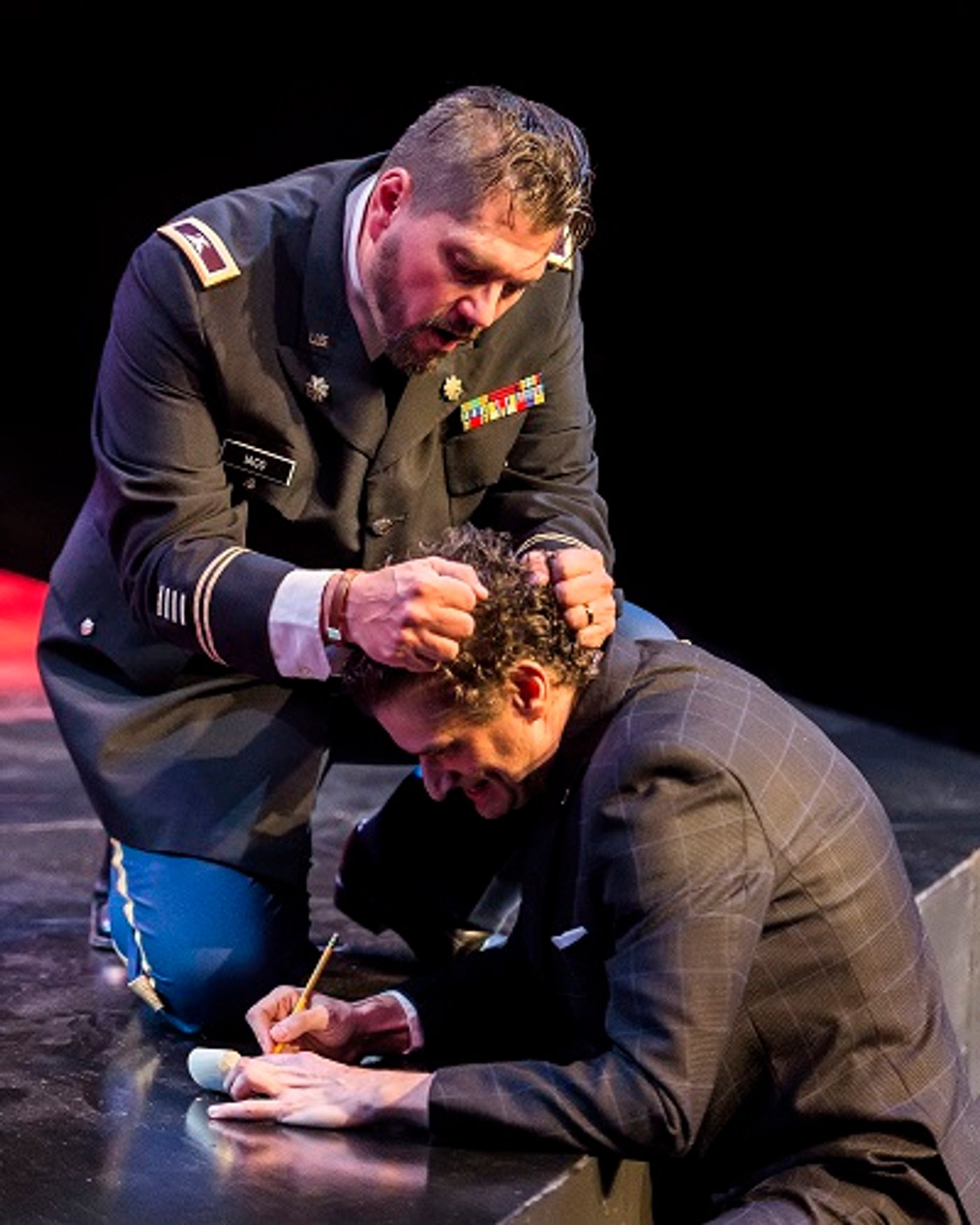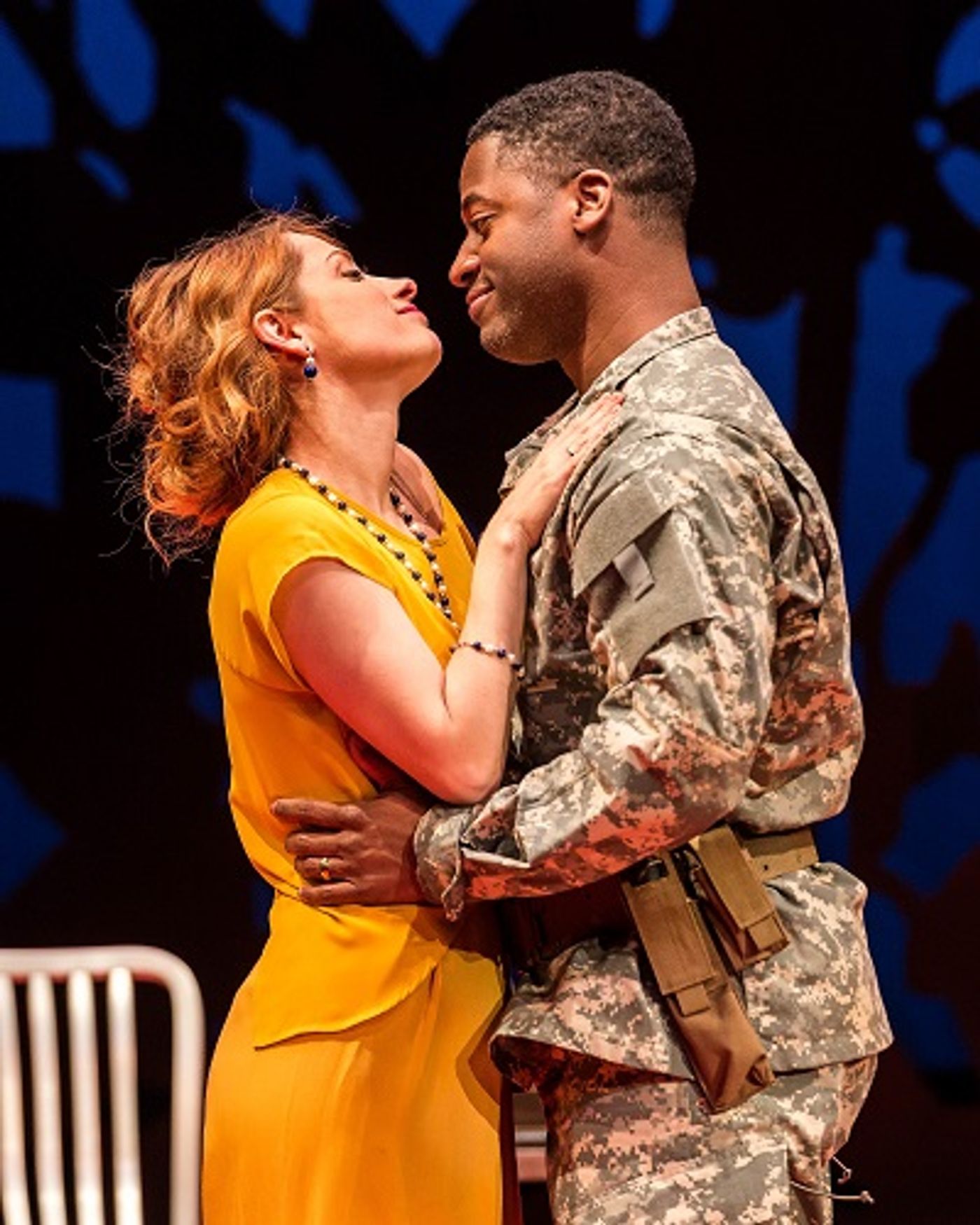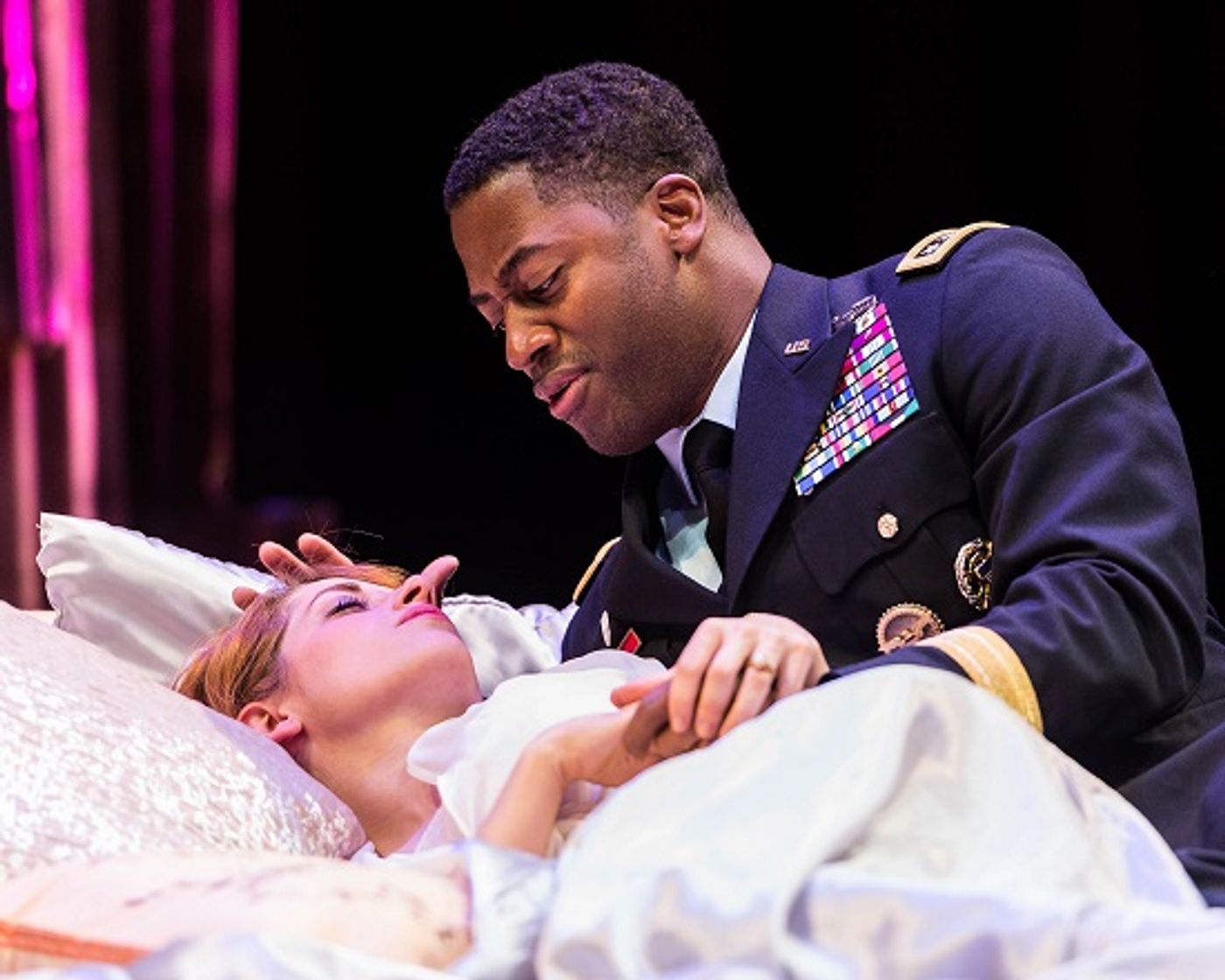Review: A Modern Day OTHELLO Finds Humor Amid the Horror of Revenge

Never has the relationship between Iago and Roderigo in Shakespeare's OTHELLO stolen the show like it does in the current A Noise Within production, directed by Jessica Kubzansky. With an outwardly nonchalant Michael Manuel as the revenge seeking villain, and Jeremy Rabb, an actor who knows comedy like the back of his hand, as his unsuspecting lackey, the situational humor in Shakespeare's tragedy comes front and center. That's right, humor.
It's all there in the text and these two veteran actors play it so realistically in Kubzansky's modern day setting that the found humor comes as a complete surprise. Don't get me wrong, dead bodies will still litter the stage by the end of the play but, in this context, an audience gets the unexpected release of tension that comes with comedy as part of the journey. It is a wonderful juxtaposition of tones that serves the play's vision remarkably well.
Manuel is slow and calculating, almost unassuming at times, until the moment he first explodes. He internalizes the depth of his resentment in front of the other characters so effectively that his outburst is shocking in its intensity, particularly since he also establishes an intimate rapport with the audience in his prior speeches and even we don't see it coming.
Rabb is typically the most interesting actor on stage in any production. Even when wearing a costume piece that is clearly a sight gag, the seriousness of his intentions gives his performance dimension. He plays the scene, not the comedy and it is fascinating. Between the two of them, it's an advanced acting lesson in connecting, making the unique choice, and being believable in every moment.
Normally, it is the relationship between Iago and Othello (Wayne T. Carr) that drives the story as Iago plants the seeds of doubt in his general and then destroys him one act at a time. Passed over for a promotion by Othello, Iago is bitter. Whatever their relationship has been before the play begins - friends, brothers on the battlefield, confidants - and whatever slights Iago has held between them until now, this is the straw that breaks the camel's back,
Carr is serviceable in the title role but lacks charisma. Because Othello is an outsider by the playwright's design, his skill with words must convince us that he is capable of wooing both soldiers to follow him on the battlefield and Desdemona (Angela Gulner) to desire him as a husband. But the romance between the general and the Duke's daughter feels forced in this modern time period and they are not able to overcome the mismatch in personalities like the characters do in a more traditional setting. Even in their intimate moments, he wears a soldier's stiff reserve, while she floats through the play wearing resort wear (the most puzzling of which is a replica of Julia Roberts' iconic race track dress from Pretty Women.) His demeanor holds up better when he interacts with his men.

In updating the time period, Kubzansky has also cast women to play several of the male characters. It happens more and more frequently in modern productions, and often to great effect, but there are inconsistencies here that don't add up.
Desdemona's father Brabantio is renamed Brabantia and played by Bonita Friedericy, the messenger Lodovico becomes Lodovica (Jeanne Sakata) while the Duke remains the Duke but is played by Sally Hughes. Hughes' gender change isn't reflected in the text perhaps because her character is referred to as "the Duke" at least twenty times and it would understandably be difficult to update it without interfering with the verse. Still, it jars the brain a bit to not address the conflicting title. In this case, Hughes is effective, but the opportunity to see something new by a woman in the role isn't realized.
Likewise, Friedericy plays Brabantia as an angry mother however her performance, or the direction of it, doesn't take into account the differences between a mother feeling betrayed and a father. Rather, the gender of the parent becomes negligible, and it misses the chance to explore those feelings from a different perspective. The references to Othello and Brabantia also now carry new insinuations about their relationship that aren't addressed and don't exist when the role is played by a man.
One other change that affects the story is making Emilia (Tania Verafield), normally Desdemona's attendant, a soldier. As a subservient character it isn't hard to believe her actions but that a woman would so easily betray another woman today, especially when that woman is also subject to a soldier's code of honor, feels disingenuous. Does it happen? Probably, but the update doesn't account for the impact of the current women's movement on the story nor the awkwardness of Emilia's final scene. To its credit, the diverse makeup of the ensemble does reflect today's modern world and that is always a positive choice.

Frederica Nascimento's scenic design places the actors on a raised pedestal playing area painted with a red block cross, perhaps symbolic of both the blood of war and Iago's morally bankrupt actions, which will in turn cause blood to be spilled throughout the play. The open space changes with the addition of movable furniture and pieces that drop in to change locale - a patchwork of corrugated tin for military scenes, a filigreed gate for a garden love scene.
Rose Malone's lighting incorporates the use of smart phones and intentional darkness into the play, which is particularly effective when used by Manuel's Iago. John Zalewski's sound design blends subtlety with several piercing effects to enhance scenes without overpowering them.
So, an OTHELLO that's funny is a big surprise. A Noise Within's production proves the comedy is fundamentally in the play - it just takes the right actors to uncover it. And while not everything else works quite so well in this modern context, the humor lands on all fronts.
OTHELLO
February 10 - April 28, 2019
A Noise Within
3352 E. Foothill Blvd.
Pasadena, CA 91107
Tickets: 626-356-3100 or www.anoisewithin.org
Photo credit: Craig Schwartz


and Jeremy Rabb
Reader Reviews
Videos



